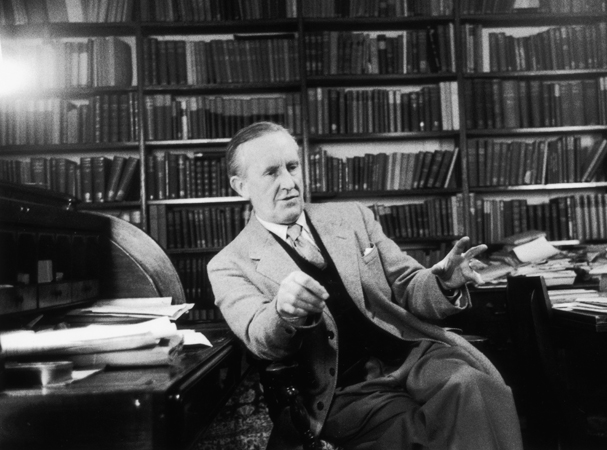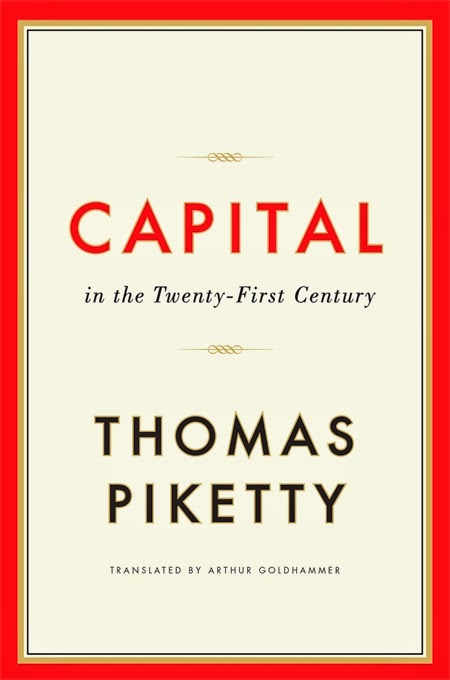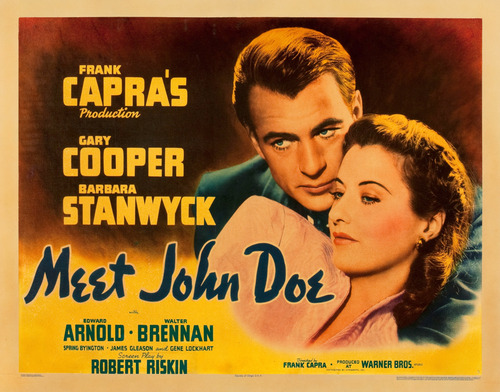As you’d expect from a man who had to create, in painstaking detail, all the races that populate Middle-Earth, J.R.R. Tolkien had little time for simple racism. He had especially little time for the highest-profile simple racism of his day, the wave of anti-Jewish sentiment on which Adolf Hitler and the Nazi party rode straight into the Second World War. His first novel The Hobbit, predecessor to the Lord of the Rings trilogy, first appeared in 1937, a time when the situation in Europe had turned ominous indeed, and would get far uglier still. It didn’t take long after the book’s initial success for Berlin publisher Rütten & Loening to express their interest in putting out a German edition, but first — in observance, no doubt, of the Third Reich’s dictates — they asked for proof of Tolkien’s “Aryan descent.” The author drafted two replies, the less civil of which reads as follows:
25 July 1938
20 Northmoor Road, Oxford
Dear Sirs,
Thank you for your letter. I regret that I am not clear as to what you intend by arisch. I am not of Aryan extraction: that is Indo-Iranian; as far as I am aware none of my ancestors spoke Hindustani, Persian, Gypsy, or any related dialects. But if I am to understand that you are enquiring whether I am of Jewish origin, I can only reply that I regret that I appear to have no ancestors of that gifted people. My great-great-grandfather came to England in the eighteenth century from Germany: the main part of my descent is therefore purely English, and I am an English subject — which should be sufficient. I have been accustomed, nonetheless, to regard my German name with pride, and continued to do so throughout the period of the late regrettable war, in which I served in the English army. I cannot, however, forbear to comment that if impertinent and irrelevant inquiries of this sort are to become the rule in matters of literature, then the time is not far distant when a German name will no longer be a source of pride.
Your enquiry is doubtless made in order to comply with the laws of your own country, but that this should be held to apply to the subjects of another state would be improper, even if it had (as it has not) any bearing whatsoever on the merits of my work or its sustainability for publication, of which you appear to have satisfied yourselves without reference to my Abstammung.
I trust you will find this reply satisfactory, and
remain yours faithfully,
J. R. R. Tolkien
“I have in this war a burning private grudge against that ruddy little ignoramus Adolf Hitler,” Tolkien wrote to his son Michael three years later, by which time the war had reached a new height. “Ruining, perverting, misapplying, and making for ever accursed, that noble northern spirit, a supreme contribution to Europe, which I have ever loved, and tried to present in its true light.”
He had already faced German forces in combat during his service in World War I, and had almost became one of World War II’s codebreakers after the British Foreign Office’s cryptographic department brought the possibility to him in early 1939. He did not, in the event, participate directly in the conflict, but he did leave behind an uncommonly eloquent paper trail documenting his stance of unambiguous antipathy for the Nazis and their ideology.
For more such fascinating perspectives vouchsafed to history through the mail, do have a look at Letters of Note: An Eclectic Collection of Correspondence Deserving of a Wider Audience, the brand new book from the site of the same name. Tolkien’s letter above comes from it, as do many of the illuminating missives we’ve featured here before — and, without a doubt, those we’ll continue to feature in the future.
Want to download a Tolkien audio book for free? Start a 30-day free trial with Audible.com and you can download one of his major works in unabridged format. You can keep the book regardless of whether you continue with their great program or not. There are no strings attached.
Related Content:
“The Tolkien Professor” Presents Three Free Courses on The Lord of the Rings
Discover J.R.R. Tolkien’s Personal Book Cover Designs for The Lord of the Rings Trilogy
C.S. Lewis’ Prescient 1937 Review of The Hobbit by J.R.R. Tolkien: It “May Well Prove a Classic”
Discover J.R.R. Tolkien’s Personal Book Cover Designs for The Lord of the Rings Trilogy
Colin Marshall hosts and produces Notebook on Cities and Culture and writes essays on cities, language, Asia, and men’s style. He’s at work on a book about Los Angeles, A Los Angeles Primer. Follow him on Twitter at @colinmarshall or on Facebook.




